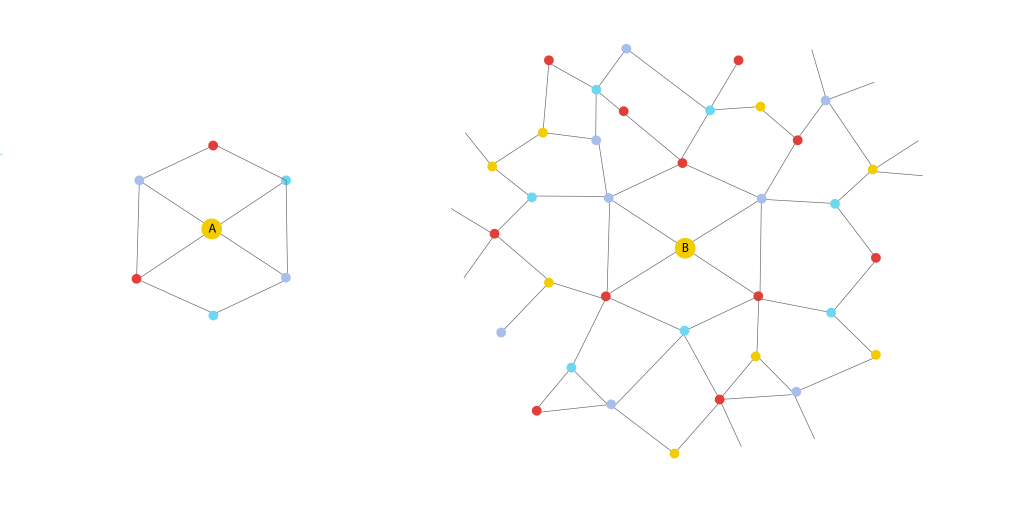At Biz Group, we believe that investing in R&D is key to staying ahead of the curve. We are constantly exploring international content and bringing you the latest happenings in the L&D industry globally.
Recently, two of our team joined the Learning Tech conference in London, Europe’s leading showcase of organisational learning and technology used to support learning at work. Our team gained valuable insights and networked with industry leaders with the aim of bringing the best practices to you.
In this blog article, Matthew Wilkins, our Director of Learning Technology, summarises his learnings from the Learning Tech Conference.
As I reflect on Learning Tech 2023, I feel like we are sitting on a precipice of opportunity. If, however, I was to base my view purely on what the majority of Learning Tech providers were exhibiting, it doesn’t look like the industry has noticed.
The stands, in most cases, could have been from pre-Covid, a mixture of LMS, LXPs, Content Houses, and Coaching Curation engines, without a hint that OpenAI even existed.
In contrast, the discussion among the community was trying to understand the exponential impact of the democratisation of and access to AI LLM and Generative AI on not just the HR and Learning community but the industry as a whole.
While compiling my thoughts on the entire event, three things REALLY hit home for me:
Having “grown up” in Biz Group (joining 12 years ago in April) – an amazing Learning organisation that has constantly focused on enriching lives through learning, the opening keynote resonated on a number of levels but also left me feeling a little uneasy about the reality of the system that has been created within the corporate world.
Njeri Mwagiru – Institute for Future Research (IFR), and Robin Teigland – Professor at Chalmers University of Technology & Co-founder of Peniche Ocean Watch, opened the conference with a session titled “Successful Living and Learning in a World of Technological Disruption.”
The consistent theme throughout both sections was clear:
I had a living illustration of the power of conversation and exploration when combined with technology the moment I landed back in Dubai 48 hours later (too few of which were spent sleeping). I was meeting with a long-standing partner who operates one of the world’s biggest 5-star hotel chains, discussing the extreme lack of culinary skills coming into the ME sector. During the discussion, AI came up, and the opportunity for disruption… the conversation went a little bit like this (and consider this was with two masters of the trade):
“So, what is all this AI stuff anyway, and how can it help me in the kitchen?”
“A good question,” I said, “let’s experiment, shall we? What is one of the biggest challenges you face?”
…without a pause…
“Menus and dietary considerations,” says he, “when we were starting out, there was none of this; there were no intolerances, allergies, preferences, nothing! Now we have to spend HOURS creating our menus and brainstorming what we can construct for all tastes while allowing for a 5-star palette and expectation.”
Those of you who have experimented, I’m sure, can guess what came next…
Within 5 minutes flat, we had a 5-star menu that a Sous Chef could prepare for an executive dining event based on a 5-course degustation menu with vegan and gluten-free options based on European cuisine.
…if you don’t think there is an opportunity here, you’re already missing out!
Just like Njeri and Robin said, however, the power was in the conversation and the problem!
One of the wonderful illustrations Robin used to hit home her point was this:
Who has the better network?

Now, who has the better network?

The message – collaborate and communicate, then collaborate and communicate some more!
My question here is simple (although I suspect the answer is not): when we live in a world that incentivises a culture of command and control, how do we move to one of abundance and collaboration?
Another session which left me feeling both excited and somewhat disappointed. It was led by David Kelly – CEO of the Learning Guild, and Dani Johnson – of Red Thread Research.
Those of you who know us at Biz Group will know how much we push ourselves to explore the “what next” (a nickname our CEO Hazel Jackson coined early in her career and something I’ve probably taken a little too much to heart). What excited me was the opportunity of what feels like the “great reset,” where EVERYONE is suddenly starting from zero, old rules and hierarchy of knowledge will matter less as 90% of the global population is only just beginning to find their way forward. One of my big personal regrets is that I just missed the window where coding became part of the school curriculum. So I immersed myself in ensuring I could understand the impact of ML and AI versus being able to truly create it. Now with everything that has been unleashed on the world (and at the time of writing this, Google has just released their take on Generative AI and integrated it into its extensive world of tools and partners), we all suddenly have the opportunity to experiment and do things that previously were confined to testing labs.
The message, however, based on Dani’s research, contained a MAJOR divide, leaving me wondering about the ambition and curiosity of the Learning Tech industry as a whole.
Of the people surveyed:
“Only 35% of Technology providers are experimenting with Large Language Models, while 36% are not planning to at all, and another 11% only plan a small amount of experimentation.”
That represents nearly 50% of the market, and it leaves me thinking that it will be people, colleagues, and friends who will drive the transformation over the coming months versus those who we may have historically looked to for guidance.

Some might argue that LLMs are just another buzz and will die down in the same way that the metaverse did (whether that has died down or evolved into something more practical is a debate for another day), that the core tech and organisations shouldn’t worry too much about being disrupted – one statistic raised by one audience member (who I later realised was non-other than Donald Clark – more on him later) which was in the 24 hours before the conference a company which predicted revenue of $175,000,000 this quarter had 40% wiped off its share value due to the impact of ChatGPT.
If then it is us as individuals, who are to lead this change, David offered three questions that will serve as a compass through the chaos and ensure we continue to offer maximum value in what we do:
It is this final question that triggered a series of other questions: Within the Human Capital and Learning sector, what is the role we all need to focus on?
If elements of HR are no longer about answering questions about employment – how do I book my leave? Does my insurance cover this? What is the process for XYZ?
LLMs have access to infinitely more information and context than we as humans could ever possibly hope to have in answering these questions – in that case, what does that create more time for when HR Admin is no longer a burden?
When in an industry cluttered with books, “IP”, models, and schools of thought on how best to develop people – what will happen when an LLM can build a new approach that is specifically curated based on the culture and history of the organisation, the industry they serve, and the challenges they face every day?
Suddenly, if we can spend less time TELLING and DESIGNING and more time creating new ways to explore and apply learning, how much more could suddenly be possible?
One example of this, which is already causing massive disruptions with global implications, is the writers’ strike in the US, where they are contesting the Studio’s rights to use AI to generate new scripts.
Who is to say that a studio can’t simply ask, “Write me a script for a 2-hour sequel to the latest blockbuster, where this or that new twist of circumstance takes our hero in a whole new direction?”
Another example in the music industry: using AI, someone has created a uniquely new song using an AI-generated voice that “sounds” like Drake – the song & voice are not his – but does he have any claim to the rights of this song if other people think it is his work, even though he has not actually been part of any of the creative process?
What was my ultimate takeaway from a whirlwind of 48 hours (followed by another week of explosive innovation)?
…BE PREPARED TO FAIL…a lot, experiment, test, try, talk, converse, challenge….engage!
In a world where things are on the brink of a radical shift comes opportunity – one of the final keynotes on day 1 was from Donald Clark (I encourage you to follow him on Twitter, and I can guarantee you may not always agree, but he will make you think) – he is taking the approach of embracing the change and, as a significant IP owner (having written a number of books and other content), rather than looking to shy away from it all – is looking to create a GPT “wrapper” around ALL the content he has created over the years, “plug” that into an AI Avatar, and allow people to ask “him” questions, acting as some form of universal trainer.
I will end by thanking Donald Taylor, who was the perfect illustration of everything I’ve talked about – organising the event that connected so many minds, playing the perfect host, never stopping, engaging with all, and ensuring he had time to talk to everyone.
Finally, I’d like to leave you with some final words of wisdom from Beau Lotto that will help us all in this wonderful world of opportunity to come:
How you respond right now will change your future, so:
As we navigate the future of learning technologies and their impact on our industry, it’s crucial that we embrace change, collaborate, and adapt to new possibilities. By keeping these principles in mind and staying open to experimentation, we can help shape a more innovative and inclusive future for the learning community.
